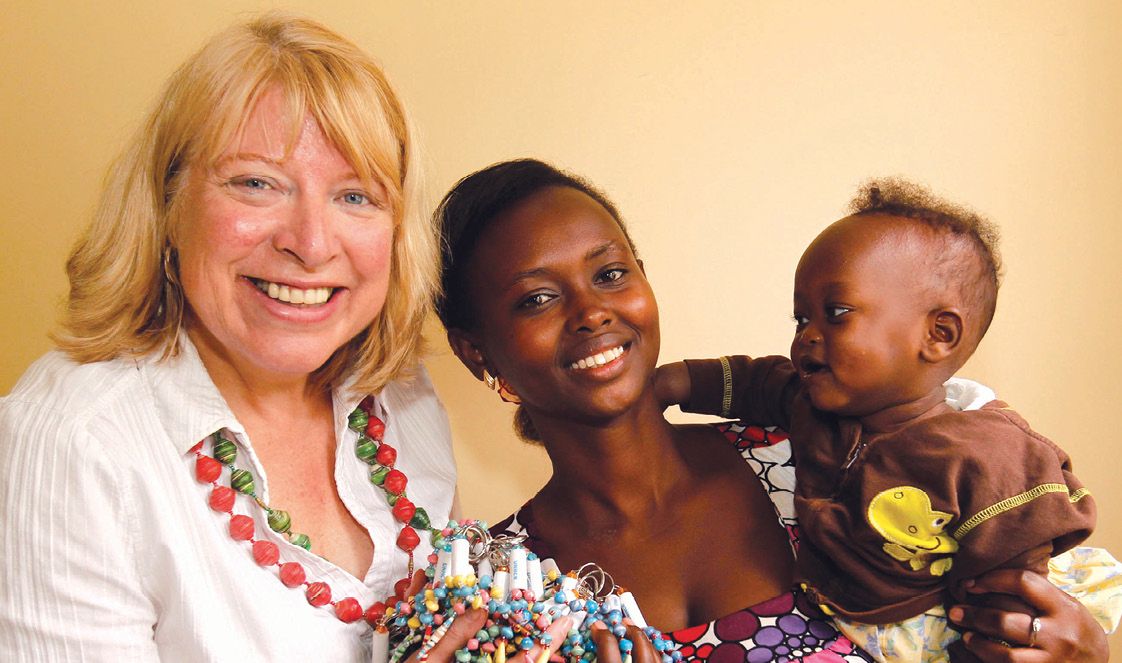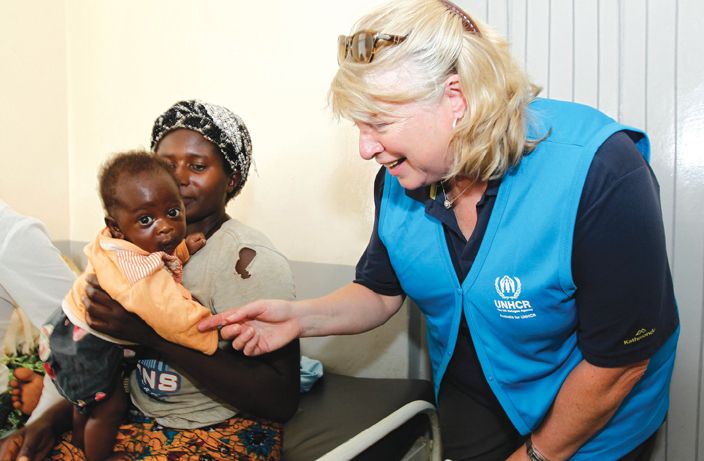Australia for UNHCR founder Naomi Steer has been dedicated to global human rights all her life. Her interest began at school. She recounts her inspirations and her amazing career with IE Journalist Sue Osborne.
My first school was Parramatta Public School. My mum used to pack two lunches, one to get stolen and one I could eat. It was a very diverse school. I don’t think we used the word multicultural in those days. I’m glad I went there as it gave me a broad outlook on life at an early age.
High school was Monte Sant’ Angelo Mercy College in North Sydney.
I had a history teacher that took us to hear Jack Lang speak. She was an amazing teacher that used what was happening politically or socially to engage her students. She went beyond the call of duty. Going to a Catholic school did give me a sense of social justice as there was always fundraising for missions in PNG and elsewhere and the nuns were active in the community.
It gave me the idea that social justice was not just about charity but getting involved in the political sphere as well. Throughout the school there was a culture of expectation that girls would lead independent lives and contribute to the community.
I was hopeless at maths and science. We had a Vietnamese refugee called Wat arrive at the school who was great at maths and science but struggled with English. As I was a chatterbox the teacher paired us up. I suppose she hoped we’d rub off on each other. So in the 70s I had an awareness of Vietnamese refugees.
I didn’t have much of an idea what I wanted to do when I left school. I knew I was interested in communication. I ended up doing law at the University of NSW, which was the cutting edge course at that time. Students visited Long Bay Jail as part of the legal service there, interviewing prisoners. Years later I was a board member of Justice Health the agency that oversees inmates’ health services in NSW. I found going back to Long Bay confronting and I wondered how I used to blithely show up as a 21 year old student.
After uni my first job was with the Department of Foreign Affairs as a diplomat, and my first posting was to the UN in New York. I was part of the human rights committee working on refugees and women’s rights. I helped with the conclusion of the Convention Against Torture, which had taken 30 years to negotiate. It was a seminal moment.
I learnt that Australia punched above its weight then. The calibre of senior diplomats was wonderful. Australia was respected, particularly around its human rights ethics in the mid 1980s. Australia was a founding member of UNHCR back in the 50s – people forget that.
After New York I was posted to India where my role included looking after cultural exchanges working with artists and performers from both countries. After three years I decided to resign. People were surprised I wanted to leave such a greatjob but I wanted to get back to Australia to do something that was more hands on and change making.
Actor’s Equity needed an industrial organiser and I had some links from my cultural work so I took the position. It was different after the conservative diplomatic world. The office was in bohemian Kings Cross. One of the first things I had to do was coordinate the puppeteers subcommittee. I held a protest to save the heritage Regent Theatre. After carrying diplomatic bags for politicians I was going up against them.
The membership of the union was wonderful and creative and we had some big issues around Australian content and culture and getting the working wage for actors above the poverty line.
I became the elected secretary of the NSW branch and oversaw the amalgamation with the journalists’ union, which was a huge exercise. In 1996 I was elected to Unions NSW as Deputy Secretary, at a time when unions were trying to amalgamate and work together. I was one of the few women to hold that position.
I loved my role at Unions NSW but I was keen to to do something that helped link Australians to the global human rights movement. Being asked to set up Australia for UNHCR to help fund UNHCR’s global humanitarian operations combined my international interests with my advocacy and fundraising work. This year UNHCR will raise $35 million from 100,000 mainly individual donors, to do lifesaving projects. People should be really proud of that. We like to highlight to the government that this level of support is available in Australia. Unions, including the IEU, have always been great supporters as well.
When I started UNHCR I thought I would be based in Australia. But I’ve been to Afghanistan, Burma, Somalia, Sri Lanka, East Timor, Chad, and the DRC [Congo].
One of our first ground breaking projects was to set up a reproductive health program for the Rohingya in Burma. They are one of the most marginalised peoples in the world, with no citizenship.
We set up a hospital in Somalia. I never thought I’d go there. I asked the doctor at the hospital why I wouldn’t be kidnapped. He said because he treated the leaders of both the opposing clans in the areas. I wasn’t that reassured!
Australia is the largest donor to programs around sexual and gender based violence in East Africa and the DRC. Eighty per cent of refugees are women and children. We also run women’s education and livelihood programs. Refugee issues are women’s issues.
I guess this concern for women started and was reinforced right back in those early days at Monte, and it’s stayed with me through life.
Support UNHCR: https://www.unrefugees.org.au/donate/donate-now#monthly




































































































































